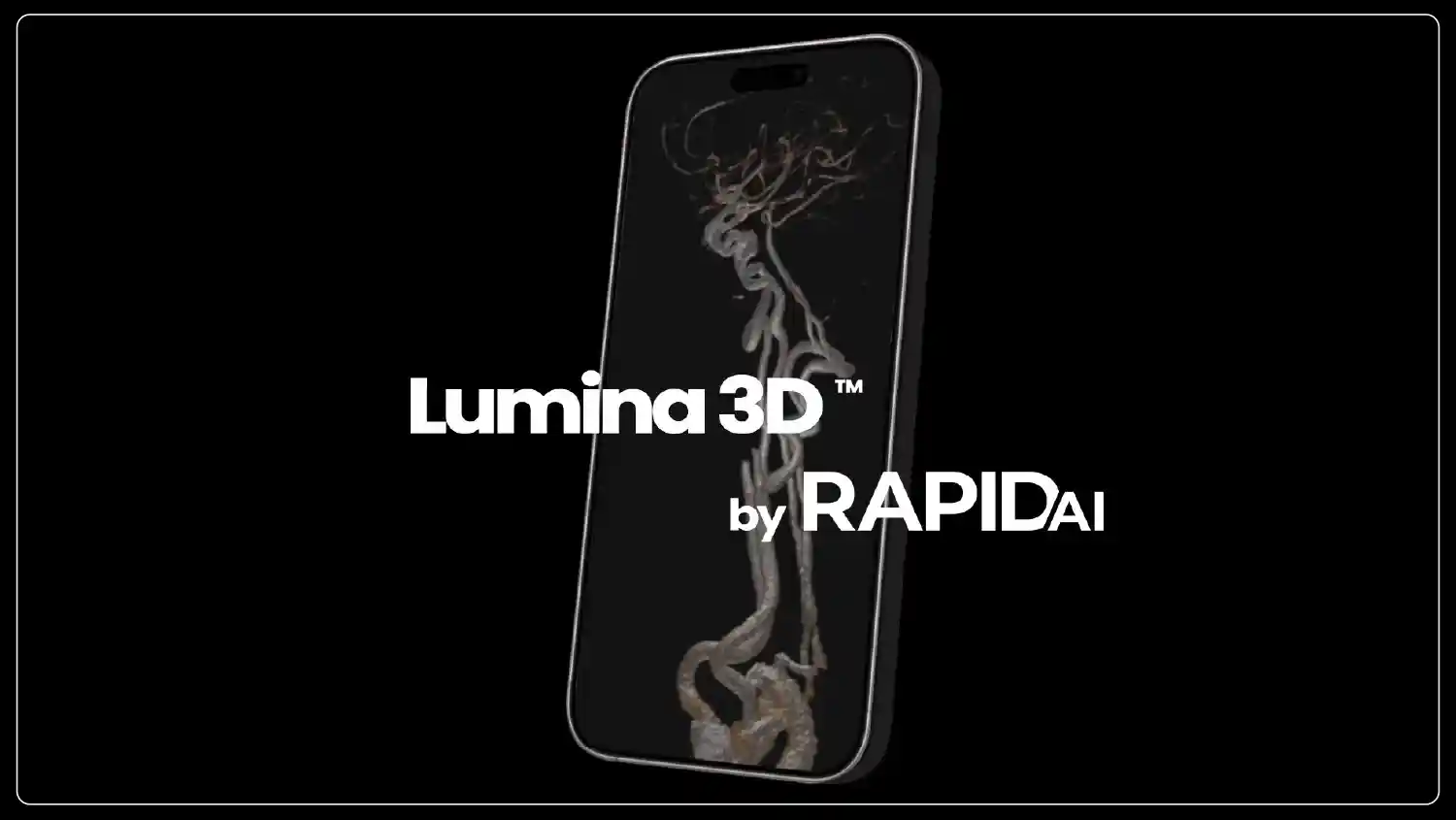RapidAI Secures FDA 510(k) Clearance for Lumina 3D: A Revolutionary AI-Powered 3D Head and Neck CTA Imaging Solution
RapidAI, the worldwide leader in artificial intelligence (AI) medical imaging technologies, recently received FDA clearance for Lumina 3D-an AI for 3D imaging reconstruction. This solution will replace manual neuroradiology workflows requiring critical judgment, knowledge, and time with expertise in minutes of high-quality 3D images. With a severe shortage of CT technicians and neuroradiologists, AI will eradicate this bottleneck at the level of patient care. On the contrary, manual reconstruction takes so much time and requires skills to the maximum extent that it further delays diagnosis and treatment. Thus, Lumina 3D™ will render high-speed imaging assessment with accuracy and efficiency.

Expert Insights on the Impact of Lumina 3D
Lumina 3D presents a technological innovation whereby near-real image processing produces a sharp three-dimensional view in segmentation of the vessel while removing the bone within minutes of a CTA scan, and in so doing, it ushers in a new era for Neuroradiology and neuro-interventional surgery. With Lumina 3D, inefficiencies may be eliminated due to manual CTA reconstructions already taking so long; the results of such reconstructions can now be availed at any minute for fast and accurate visualization of very complex anatomy. Dr. Vivek Yedavalli, Chief of Neuroradiology, at Johns Hopkins School of Medicine, noted the importance of this technological breakthrough. Lumina 3D finishes part of the Rapid Enterprise™ Platform and integrates smoothly into hospitals' workflows. AI reconstruction can be accessed across the hospital network, enabling neuro-interventional specialists to view images compressed from raw data of the aortic arch, carotid tortuosity, and whole neuro vasculature on their mobile devices. This allows for faster planning and increased accuracy in procedures, resulting in reduced intervention time and improved first-pass reperfusion rates. The solution is exclusively housed in Rapid Edge Cloud only industry engine that gives hospitals flexible deployment options: on-premises, cloud, or hybrid infrastructure that unmatched speed, security, and scalability sure can be assured.
Enhancing Patient Outcomes and Clinical Decision-Making
The major goals of RapidAI are centered on workflow efficiency enhancement, demonstrable return on investment for the hospital service line projects, and decision-making clinically aided through AI advanced insights on imaging. Karim Karti, CEO, emphasized navigating rapidly evolving challenges to influence clinical decision-making and care coordination for radiologists and interventionists. Lumina 3DTM, a next-gen advanced AI imaging and clinical decision-making tool, is born out of the neuro-sciences expertise of RapidAI. This is an FDA milestone in AI medical imaging that will create a watershed by automating 3D image reconstruction, increasing workflow efficiency, optimally utilizing hospital resources, and enhancing patient outcome perspectives in real-time insights from the hospital network. It certainly sets the foundation for a new global gold standard in AI imaging solutions.